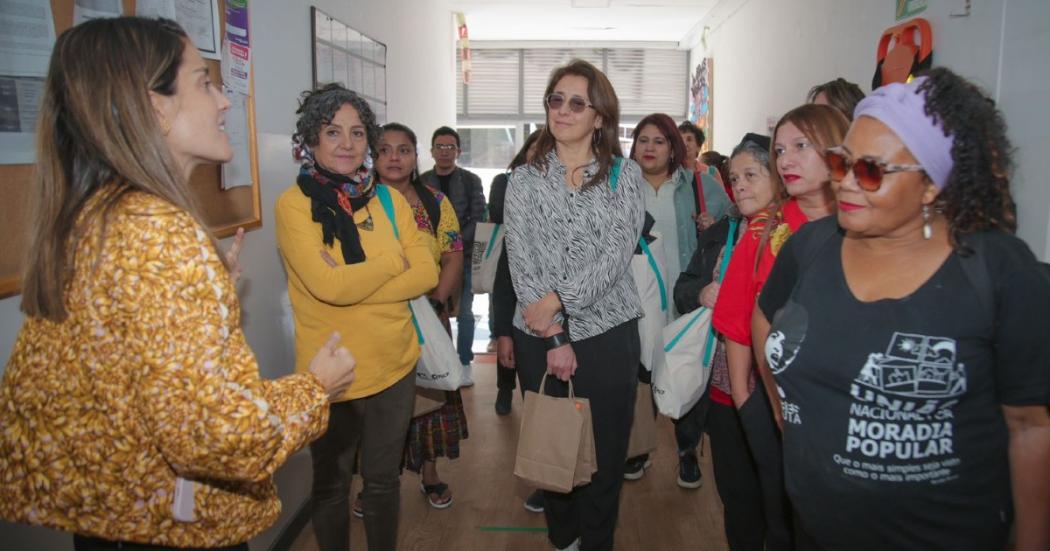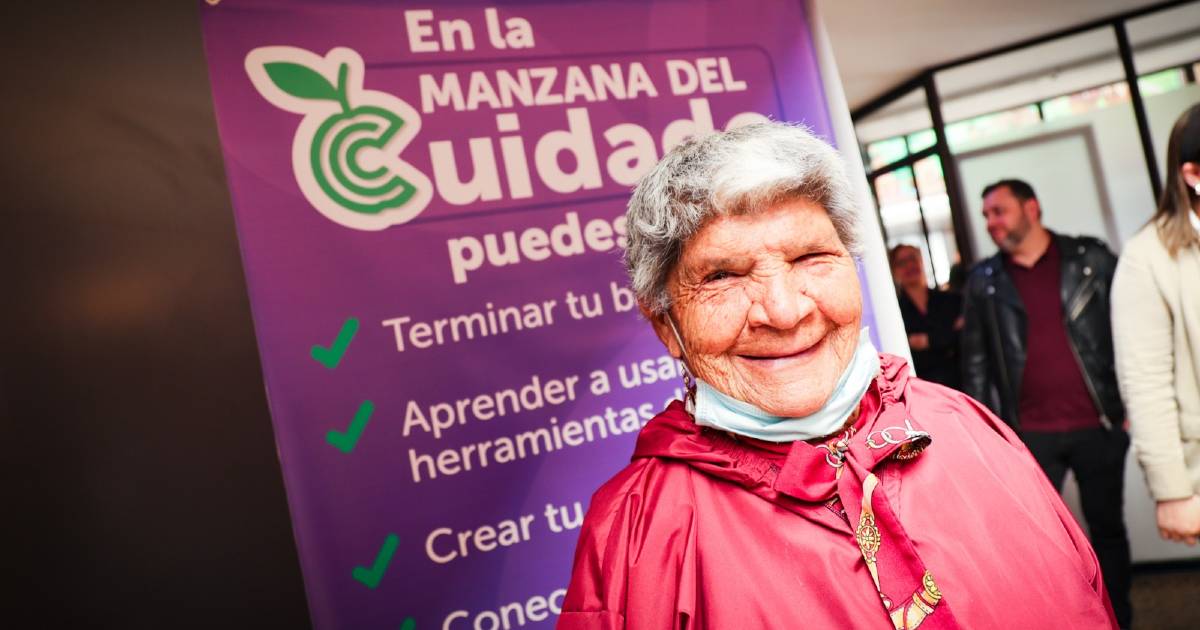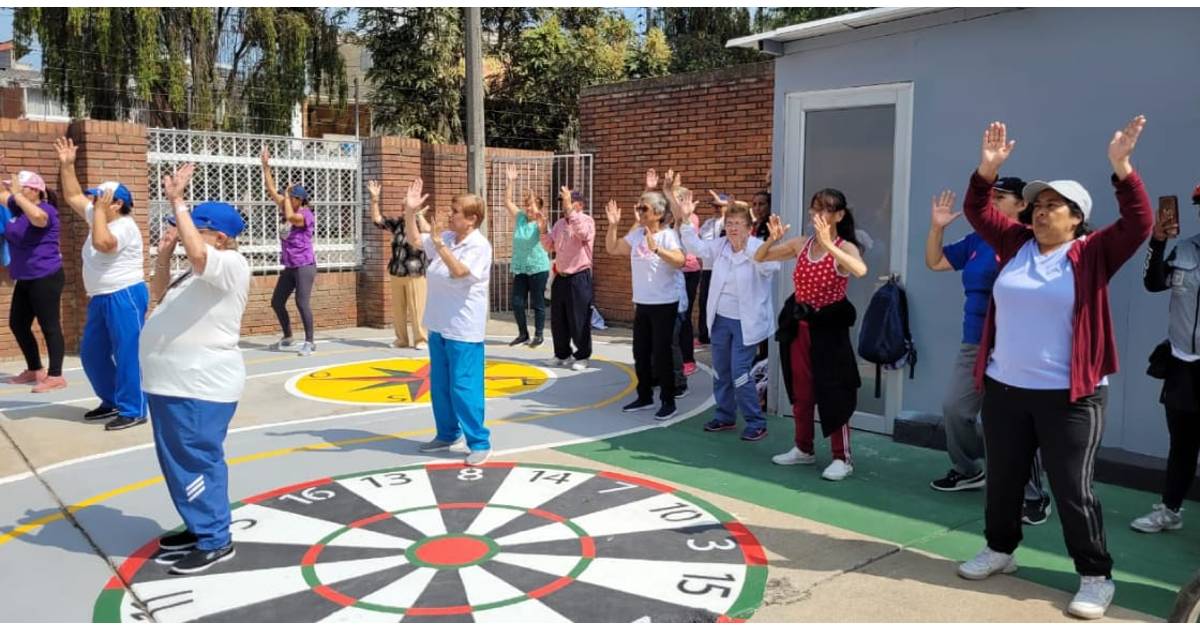Bogotá is currently hosting the "Feminist Cities: Care and Sustainability of Ecosystems" forum, a meeting led by the Women and Habitat Network of Latin America and the Caribbean (RMyHALC) and Gender Responsive Resilience and Intersectionality in Policy and Practice (GRRIPP). The forum aims to generate an open dialogue about the challenges and projections of care and sustainability policies in cities and territories in Latin America, with a focus on gender.
The forum, which started on April 17th, is bringing together more than 50 women academics, experts, and women leaders from Latin America and the Caribbean, who are engaging in conversations about the future of territories through the integration of a gender approach and care policies, together with civil society.
On the last day of the agenda, the guests visited the Care Block of the Center of Bogotá, where they learned about how the City Administration created and implemented the first Care System of a city in Latin America.
In the following tweet, the Secretariat for Women's affairs shared a part of the meeting at the Care Block of the Center, where 50 experts learned about Bogotá's efforts in creating the first Care System of a city.
🍏¡El Foro #CuidadesFeministas de @grripp y Red Mujer y Hábitat ALC llegó a la #ManzanaDelCuidado del Centro!
— Secretaría de la Mujer (@secredistmujer) April 19, 2023
Más de 50 expertas y expertos en cuidado, género y sostenibilidad conocieron el trabajo de @Bogota en la creación del primer #SistemaDeCuidado de una ciudad en AL. 👇🧵 pic.twitter.com/s1jEGy2hf6
During the visit, Bogotá's efforts to integrate education services, income generation, elimination and addressing violence against women, health, and well-being under a care and gender approach were highlighted. This approach also aims to bring infrastructure closer to women and those they care for, including children, the elderly, and people with disabilities.
During the tour, they visited various facilities that are part of the Care Block of the Center of Bogotá. The first stop was the Lourdes Community Development Center (CDC), a facility where they saw how community laundry, rest, and well-being services operate for women caregivers.
They also toured the Day Center at this CDC, where the Secretariat of Social Integration provides care and capacity building services to people with disabilities who require high levels of support.
They then visited the Equality House for Women in the Santa Fe district, which is the anchor facility of the Care Block of the Center. Here, they learned about the services provided by the Secretariat of Economic Development to help women regain their economic autonomy through employment and entrepreneurship routes.
Additionally, they visited the reading room of this Care Block, which is a space of the Secretary of Culture where women can read texts written by women and challenge gender stereotypes around care.
During the visit to the house, they saw "The Art of Taking Care of Yourself" service in action from the Secretary of Social Integration, which provides care for girls and boys while their caregivers learn, start businesses, get jobs, and rest.
The visit ended with a conference by the Secretary for Women's Affairs, Diana Rodríguez Franco, where guests were able to learn about how Bogotá put care at the center of public policies and the city's sustainability.
Participants praised the City Administration's work in placing care not only as a central part of Bogotá's social policy agenda but also as an organizing element of the territory and a key component of sustainability.
What are Bogotá's Care Blocks?
Bogotá is the first city in Latin America to create a Care System, a program that seeks to recognize, reduce and redistribute unpaid care work among everyone.
To achieve these purposes, the City Administration designed and implemented Care Blocks, areas of the city that concentrate the services for caregivers and their families.
With the Care Blocks, we guarantee that caregivers have free services to study, start a business, rest, exercise, receive medical, psychological, and legal attention, while providing those they care for - children, older adults, and people with disabilities who require high levels of support - with services in which we develop their abilities and promote their autonomy.
Thus, in the Care Blocks, we manage to provide time and services that reduce women's caregiving burden and give them more and better opportunities.








